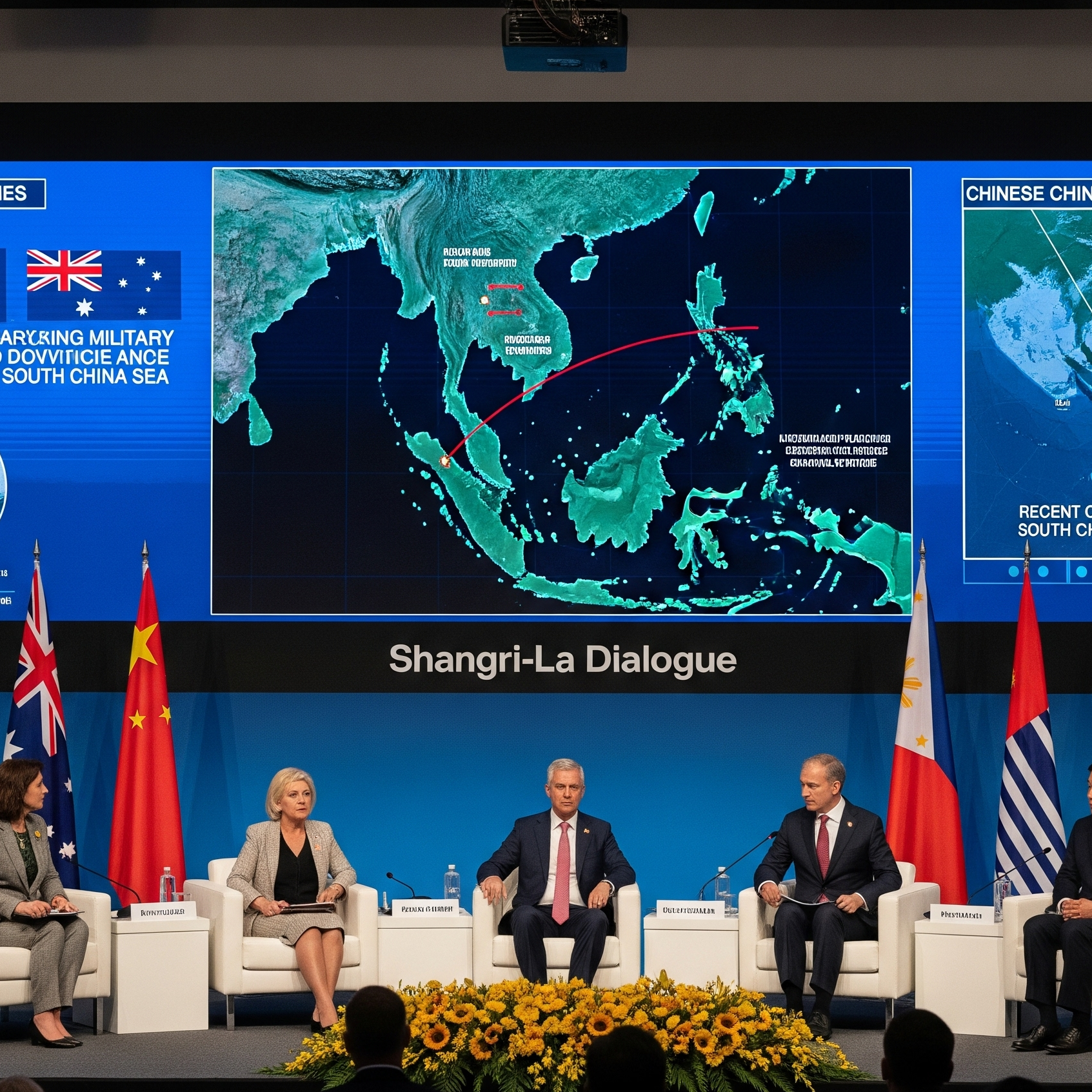At one of Asia’s most prominent defence summits, the Shangri-La Dialogue, concerns over China’s growing military power took center stage. With China sending only a lower-level delegation and choosing not to give a keynote speech this year, its absence created space for strong statements from its regional neighbors — notably Australia and the Philippines.
Australia Calls for Transparency

Australian Defence Minister Richard Marles called on China to explain its massive and rapid military build-up, describing it as “the single largest increase in conventional military capability by any country since the end of World War II.”
Marles emphasized that the concern isn’t just the size of the military expansion, but the lack of strategic clarity behind it. “It’s happening without any explanation or reassurance,” he told reporters. “What we want is transparency and an understanding of why this build-up is necessary.”
He contrasted China’s approach with Australia’s, pointing out that Canberra openly shares its defence strategies and intentions, which are focused on national and regional security. “We provide total strategic clarity to our neighbors and the world. We’d like to see China do the same,” he said.
Despite recent military exercises by China near Australian waters — which Marles acknowledged were lawful under international rules — he urged that all military actions in the region should respect the rules-based international order.
Philippines: ‘Irresponsible and Reckless’ Behavior in the South China Sea
In a separate statement, Philippine Defence Secretary Gilberto Teodoro Jr strongly criticized China’s actions in the South China Sea, calling them “absolutely irresponsible and reckless.”
China has repeatedly clashed with the Philippines over territorial claims in the region. Teodoro highlighted aggressive tactics by the Chinese coast guard and warned that the international community cannot turn a blind eye.
He stressed the importance of maintaining a rules-based global system and voiced support for continued leadership from the U.S. and Europe. “Countries like the Philippines, Lithuania, and Latvia value freedom and dignity. We don’t want to live under fear or surveillance,” he said, making a pointed reference to Beijing’s style of governance.
US and Allies Push Back
The comments followed strong warnings from US Defense Secretary Pete Hegseth, who accused China of trying to dominate the region and posed an “imminent threat” to Taiwan. Hegseth called on Indo-Pacific nations to boost defence spending — something Australia has started doing, according to Marles, including through its participation in the AUKUS security pact with the UK and US.
China Responds with Sharp Criticism
In response, China’s Foreign Ministry rejected the accusations, calling the US the true “hegemonic power” and blaming Washington for destabilizing the Asia-Pacific. They also dismissed French President Emmanuel Macron’s comments comparing Taiwan to Ukraine, reiterating that Taiwan is “an internal matter” for China.
Final Thoughts
With tensions rising and more countries voicing concern, the Shangri-La Dialogue this year underscored a growing regional divide over China’s military ambitions. As Beijing expands its capabilities, demands for transparency and adherence to international law are likely to grow louder — especially from its neighbors who fear being caught in the crosshairs of great power rivalry.